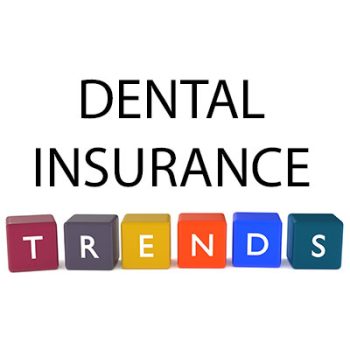Dental Insurance Trends
 Above any other medical need, people are more likely to skip seeing the dentist because they can’t afford it.
Above any other medical need, people are more likely to skip seeing the dentist because they can’t afford it.
Many people choose not to buy dental insurance because it’s an added cost without a lot of perceived value. For some reason, people simply feel more comfortable taking this risk because they don’t fully understand the consequences of oral health problems. But it’s a risk indeed. You can develop a facial or oral injury just as easily as any other injury and oral infections and diseases are just as common—if not more common—as any other.
Beyond the critical events of oral injury or infection, preventive dental care (aka your regular cleanings and check-ups) is crucial for catching problems before they become dangerous. Seeing the dentist regularly can help you address a surprising number of overall health and wellness issues.
Still, dentists understand that medical costs are rising, the world of insurance is often a mystery, and sometimes you’re just at a loss. Dr. Chang, Sugar Hill dentist at Sweet City Smiles explains more below about the current trends in dental insurance and what they mean for you.
Forgoing Dental Insurance
Of all the reasons adults avoid the dentist, 40% say it’s because of cost, followed closely by the 33% who don’t think they need dental care. You can see where this is going—there’s almost no reason someone would pay for a service they think is expensive and unnecessary.
A lot of people seek dental treatments without dental insurance to help cover it. In 2013, the numbers ranged from 12% of children to 61% of senior citizens. Insurance may seem like a luxury but when you need it, it becomes essential. If you can make any changes to your monthly budget to allow room for dental insurance, it might be one of the best ways you take care of yourself and your family. No one wants to be stuck with a cracked tooth, gum infection, or jaw pain while also wondering how you’re going to pay for treatment.
Children’s Dental Insurance
Government-mandated insurance through the Affordable Care Act does not include dental coverage, except in the case of children. This is for good reason—children are vulnerable and they’re growing at such a fast rate. Catching a health problem and treating it promptly is essential for a lifetime of health and wellness.
It’s also important that children develop good oral health habits early that they’ll stick to for the rest of their lives. Search HealthCare.Gov, or talk with a caseworker if you have one, to learn about your options for enrolling children in free or discounted dental insurance.
Increased PPOs & Decreasing Payments
PPO plans (Preferred Provider Organizations), which are more expensive, are becoming far and away more popular, making up 80% of all dental plans. However dental insurance plans are paying dentists slightly less per patient than they have in the past.
Consumerism
With or without dental insurance, more people are shopping around for the best rate before making a dental appointment. Following the recession, people care more than ever about understanding what they are paying for when they buy any goods or services.
Dental Plans Need to Stay Current
Research shows that, over time, dental insurance is the best “bang for your buck.” To help patients get even more out of their dental coverage, some plans are offering a rollover of funds if you don’t use all of your yearly benefits. Some plans allow for important preventative and diagnostic services without it going against yearly maximums.
Flexible Payment Plans
Your dentist wants you to be healthy and will do whatever we can to increase your access to good oral health care. If you’re avoiding dental treatment because you don’t have insurance and/or you’re afraid of the cost, talk honestly with your dentist, Dr. Chang. Dentists are humans, too, and we understand life circumstances, especially regarding health and finances.
Some flexible payment options we can discuss together are:
- Discounted services for paying upfront, before the treatment
- Interest-free payment plans
- Splitting up the treatment over time (when appropriate) so you don’t have to pay for it all at once
- Cheaper alternatives: many dental procedures have cheaper (though sometimes less desirable) ways of treating a problem. Your doctor can tell you what the most affordable route of treatment is.
If you need dental care, whether you have insurance or not, come see us at Sweet City Smiles. We’re a contemporary practice that can meet you where you are and offer caring, professional services. Make an appointment with Sweet City Smiles today!
The content of this blog is not intended to be a substitute for professional medical advice, diagnosis, or treatment. Always seek the advice of qualified health providers with questions you may have regarding medical conditions.









